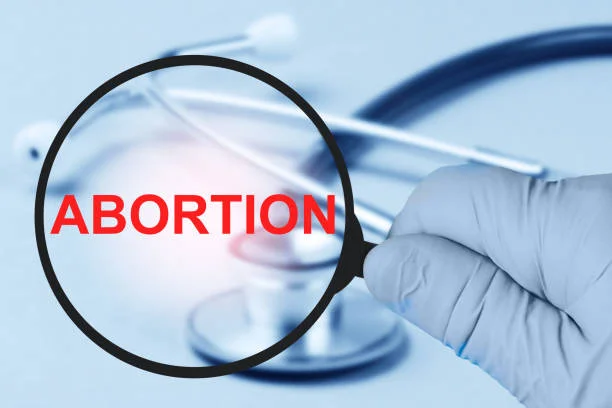Abortion clinics are often seen solely as places where women go to terminate pregnancies, but the reality is that these facilities provide a much broader range of services aimed at supporting the health and well-being of individuals facing complex reproductive decisions. From counseling to sexual health care, abortion clinics are essential health hubs that offer a range of services well beyond the procedure itself.
In this blog post, we’ll explore the variety of services provided by abortion clinics and why they are vital components of a comprehensive healthcare system.
Comprehensive Counseling and Support
One of the most crucial services offered by abortion clinics is counseling and emotional support. The decision to seek an abortion is often complex and emotional, and many individuals benefit from speaking with trained counselors or healthcare professionals before making their decision.
- Pre-abortion Counseling: This helps individuals explore their options and make an informed decision. Counseling sessions typically address the emotional, psychological, and social implications of the decision. Counselors may also provide information on adoption, parenting, and birth control to ensure the person feels empowered to make the best choice for themselves.
- Post-abortion Counseling: After an abortion, some individuals may experience a range of emotions, from relief to sadness or guilt. Post-abortion counseling helps people process their feelings and navigate any emotional challenges they may face. It can also be a space for those who may need to talk through any trauma or anxiety.
Readers also enjoyed this connected article—check it out.
Birth Control and Family Planning Services
Abortion clinics often provide a wide array of contraceptive services and family planning options to help individuals prevent unplanned pregnancies in the future. This includes both long-acting reversible contraception (LARC) such as IUDs and implants, as well as birth control pills, patches, and rings.
- Counseling on Contraceptive Methods: Clinics educate patients about the various birth control options available to them. Staff members help individuals choose the most suitable contraceptive method based on their health needs, lifestyle, and future reproductive plans.
- Access to Contraceptive Methods: Many clinics offer same-day access to birth control, making it easier for individuals to obtain their preferred method. This is especially important for people who may not have insurance or access to a primary care provider.
Sexual and Reproductive Health Services
Abortion clinics are key players in the field of sexual and reproductive health. They offer a variety of services that go hand-in-hand with maintaining overall reproductive well-being.
- STD and STI Testing: Many abortion clinics offer testing and treatment for sexually transmitted diseases (STDs) and infections (STIs). These screenings are vital for maintaining sexual health and preventing complications that could affect reproductive health.
- Pap Smears and Cervical Cancer Screening: Regular screenings for cervical cancer and other reproductive health conditions are offered by many abortion clinics. These services help identify potential health issues early on and ensure individuals remain proactive about their reproductive health.
- Pregnancy Testing: Abortion clinics often provide pregnancy testing and ultrasounds to confirm pregnancy and determine the gestational age. This is crucial for individuals who are unsure about their pregnancy status or who are early in their pregnancy.
Education on Reproductive Health
Abortion clinics are not just places to receive medical procedures; they also serve as educational resources for individuals who want to learn more about their reproductive health.
- Sexual Health Education: Clinics often offer workshops and one-on-one sessions to educate patients on a wide range of topics, including contraception, sexual health, and how to track fertility. Education empowers individuals to make informed decisions about their bodies and reproductive choices.
- Information on Safe Abortions: For those seeking abortions, clinics provide thorough information about the types of procedures available, what to expect during the process, and how to manage recovery. This ensures patients feel informed and supported every step of the way.
Referral Services and Advocacy
Abortion clinics often serve as gateways to broader healthcare networks, offering referrals to additional services and support systems. Many patients seeking abortions also need access to other healthcare resources, and clinics can provide these connections:
- Referrals to Adoption Agencies: For those considering adoption, abortion clinics often work with adoption agencies to connect patients with counselors who can guide them through the adoption process. This ensures that individuals are aware of all options when making a decision about their pregnancy.
- Mental Health Referrals: Individuals experiencing emotional or mental health difficulties may be referred to therapists, psychologists, or support groups to ensure they receive the mental health care they need. This is particularly important for people navigating complex emotional issues related to pregnancy or abortion.
- Legal Advocacy and Assistance: Clinics often provide referrals to legal experts who can offer guidance on reproductive rights and access to abortion services. In regions where abortion laws are more restrictive, clinics can connect individuals with pro bono legal services or advocacy groups.
Postpartum and Miscarriage Care
While not always recognized, many abortion clinics also offer postpartum care for individuals who have recently given birth or experienced a miscarriage. These services can include:
- Postpartum Checkups: For those who have recently given birth, clinics can provide routine postpartum care, including mental health support, breastfeeding advice, and checkups for physical recovery.
- Miscarriage Support: Abortion clinics can provide medical care and emotional support for individuals who have experienced a miscarriage. This may include emotional counseling, follow-up visits, and referrals for further medical treatment if necessary.
Confidentiality and Supportive Environment
One of the most important aspects of any healthcare facility, including abortion clinics, is a supportive and confidential environment. Clinics are dedicated to protecting patient privacy, ensuring that all medical records are kept confidential and that individuals feel comfortable discussing their concerns without fear of judgment.
- Non-Judgmental Care: Clinics are staffed by professionals who are trained to offer non-judgmental, compassionate care. They understand that reproductive decisions are personal and often complex, and they create an environment where patients feel heard, respected, and supported in whatever choice they make.
Conclusion
Abortion clinics provide far more than just abortion services. They are vital healthcare hubs that offer a wide array of medical, emotional, and educational resources aimed at supporting reproductive health and empowering individuals to make informed decisions. From birth control and counseling to STI testing and post-abortion care, these clinics are essential in ensuring that all individuals have access to the comprehensive care they need for their physical and mental well-being.
Browse all categories in one place by returning to 2A Magazine.







